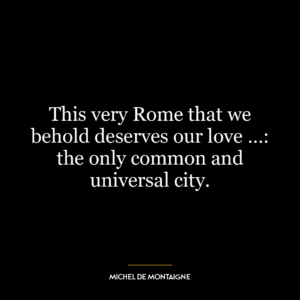Who so hath his mind on taking, hath it no more on what he taketh.
This quote speaks to the concept of fixation and obsession, particularly in relation to desire and acquisition. It suggests that when a person is consumed with the idea of gaining something, they often lose sight of the actual value or importance of that thing. Their focus becomes so narrow, so intent on obtaining what they want, that they forget why they wanted it in the first place.
In other words, when we are overly focused on taking or acquiring something – whether it be material possessions, power, status or even love – our minds can become absorbed by this pursuit. In doing so, we may lose appreciation for what it is we’re actually taking. The act of ‘taking’ becomes more significant than ‘what’ is being taken.
Applying this idea to today’s world could involve considering consumer culture and materialism. Often people are driven by a desire to possess more – more wealth, more gadgets, bigger houses – without stopping to consider why these things are valuable or what their true worth is.
In terms of personal development, this quote could serve as a reminder not to get too caught up in chasing after goals or achievements at the expense of appreciating what those goals mean. It might encourage us to step back and reflect on why we want certain things and whether achieving them will truly enrich our lives.
For example: If someone desires promotion at work solely for prestige but not considering if it aligns with their personal values such as work-life balance; then achieving this promotion may not bring happiness but stress instead because their mind was fixated only on ‘taking’ (the promotion) rather than understanding ‘what he taketh’ (the increased responsibility).
So essentially Montaigne’s words remind us about mindfulness – being present in our actions and understanding their implications rather than blindly pursuing them out of habit or societal pressure.















